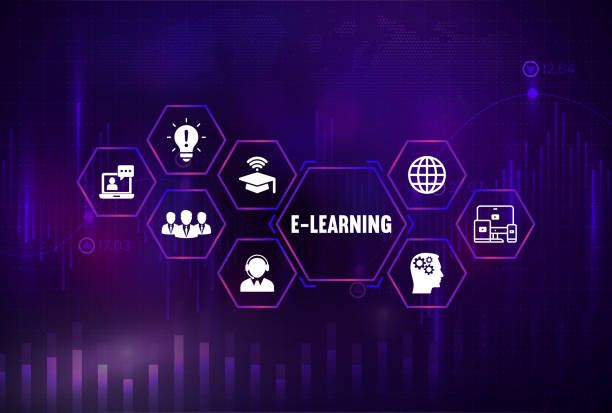🌍 Introduction: Entering the Era of the EdTech Revolution
Education has always been the backbone of human progress. From the chalkboard to the digital board, from libraries to e-books, every leap has redefined how knowledge flows between generations. The EdTech Revolution (Educational Technology Revolution) is one of the most powerful forces shaping modern society.
- 📖 History of the EdTech Revolution
- 📌 Key Facts About the EdTech Revolution
- 📅 Timeline of the EdTech Evolution
- 🌟 Significance of the EdTech Revolution
- 🙏 Wishing on the EdTech Revolution
- 📖 Observance & Importance in Daily Life
- ✅ Important Points to Remember
- ⭐ Review Section: Pros & Cons of the EdTech Revolution
- ❓ FAQs on the EdTech Revolution
- 💡 Conclusion: Daily Life Impacts of the EdTech Revolution
EdTech is not just about online classes or apps—it’s about creating inclusive, flexible, and technology-driven learning systems that empower students, teachers, and lifelong learners. Whether it’s AI tutors, VR classrooms, or global online platforms, EdTech is opening opportunities like never before.
This article dives into the history, timeline, facts, significance, FAQs, reviews, and daily life impacts of the EdTech revolution in a way that feels personal, practical, and human.
📖 History of the EdTech Revolution
Education and technology have always walked hand-in-hand:
15th Century – Printing Press (1440)
Gutenberg’s invention made books accessible to the masses, democratizing knowledge.
1920s – Radio & Broadcast Education
Universities began broadcasting lectures via radio, reaching rural areas.
1950s – Television Classrooms
Educational TV programs allowed children to learn from home.
1960s – Early Computers in Schools
Computers were introduced to universities for learning programming and math.
1980s – CD-ROMs & Multimedia Learning
Interactive digital encyclopedias brought fun into learning.
1990s – The Internet Boom
Websites like Britannica Online and early e-learning platforms emerged.
2000s – E-Learning & MOOCs
Platforms like Khan Academy, Coursera, and edX changed the landscape of higher education.
2010s – Mobile Learning & Apps
Apps like Byju’s, Duolingo, and Google Classroom became mainstream.
2020s – Pandemic & EdTech Acceleration
COVID-19 turned online learning from an option to a necessity.
Virtual classrooms, Zoom, and LMS (Learning Management Systems) became lifelines.
📌 Key Facts About the EdTech Revolution
The global EdTech market is expected to reach $404 billion by 2025.
India has over 4,500 EdTech startups (Byju’s, Unacademy, Vedantu, etc.).
The US and China lead the EdTech sector with billion-dollar investments.
AI-driven adaptive learning systems personalize education for each student.
EdTech helps over 1.5 billion students worldwide during pandemic disruptions.
📅 Timeline of the EdTech Evolution
| Year | Event | Impact |
|---|---|---|
| 1440 | Printing Press invented | Mass education becomes possible |
| 1924 | First teaching machine invented | Personalized learning concept |
| 1950 | TV educational programs | Distance learning begins |
| 1980s | Multimedia CDs | Interactive learning |
| 1990s | Internet in schools | Global access to knowledge |
| 2008 | MOOCs (Coursera, edX) | University learning online |
| 2015 | Rise of EdTech apps | Mobile-first learning |
| 2020 | Pandemic shift | EdTech becomes mainstream |
| 2025 | AI & VR in classrooms | Immersive global education |
🌟 Significance of the EdTech Revolution
Accessibility – Learning reaches remote villages and underprivileged communities.
Affordability – Cheaper than traditional tuition, making education more democratic.
Flexibility – Learn anywhere, anytime, at your own pace.
Global Collaboration – Students interact with peers across countries.
Skill-Based Learning – Coding, design, and AI courses prepare students for future jobs.
Inclusivity – Special education tools support differently-abled learners.
🙏 Wishing on the EdTech Revolution
May the EdTech Revolution:
🌱 Empower children in remote villages with world-class learning.
📖 Reduce inequality by making education affordable.
🤝 Build bridges of understanding between cultures.
🧠 Focus on creativity and critical thinking, not just exams.
“Let’s wish for an education system that builds not just careers, but also character.”
📖 Observance & Importance in Daily Life
Unlike festivals, the EdTech Revolution is observed daily in how we learn:
Students attend Zoom or Google Classroom lectures.
Professionals use LinkedIn Learning or Udemy to upskill.
Children learn languages through Duolingo or maths with Byju’s.
Parents track progress through digital dashboards.
Teachers use AI analytics to monitor student performance.
This shows that EdTech is woven into our everyday routine.
✅ Important Points to Remember
EdTech = Education + Technology.
It has roots in printing, broadcasting, computers, and AI.
It improves accessibility, affordability, inclusivity, and engagement.
It plays a crucial role in bridging the education gap worldwide.
⭐ Review Section: Pros & Cons of the EdTech Revolution
👍 Positive Reviews (Pros)
“My child in a rural area now learns the same science concepts as kids in big cities.”
“I could switch careers because of affordable EdTech courses online.”
“EdTech apps made learning fun and interactive.”
👎 Negative Reviews (Cons)
“Too much screen time harms kids’ health.”
“Not all families can afford good internet or devices.”
“Sometimes EdTech prioritizes profit over true learning.”
❓ FAQs on the EdTech Revolution
Q1. What does EdTech mean in simple words?
EdTech means using technology (apps, software, and devices) to make education easier and better.
Q2. Is EdTech replacing teachers?
No, teachers are still central. EdTech supports and empowers teachers, not replaces them.
Q3. Which countries are leading in EdTech?
The US, India, and China are the biggest players in the EdTech industry.
Q4. Is EdTech only for students?
No, it’s for everyone—students, professionals, and lifelong learners.
Q5. Is EdTech the future of education?
Yes, EdTech will continue to grow alongside traditional learning methods.
💡 Conclusion: Daily Life Impacts of the EdTech Revolution
The EdTech Revolution is not just a technology wave—it’s a human wave. It has already:
Given students in villages access to Ivy League lectures.
Helped professionals switch careers through online learning.
Reduced the cost of education dramatically.
Made learning engaging, inclusive, and global.
However, challenges like digital divide, screen addiction, and quality control must be tackled to ensure EdTech truly uplifts society.
👉 In daily life, every time you watch a tutorial on YouTube, join an online class, or use an app to learn a new skill, you are experiencing the EdTech revolution firsthand.








